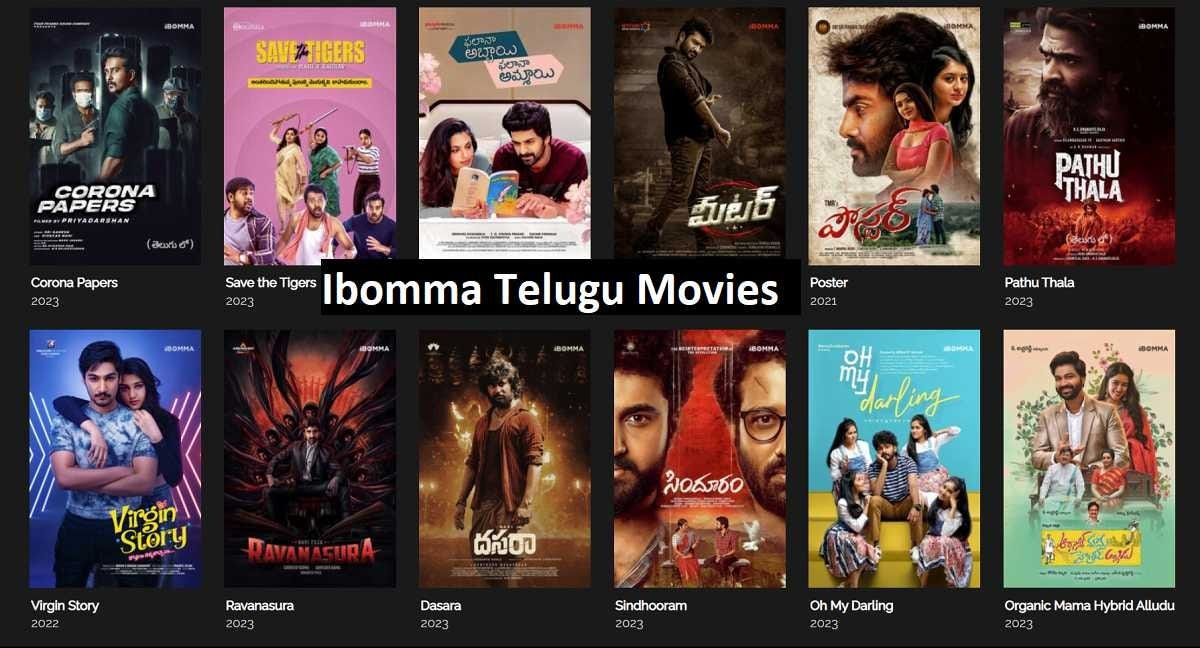In the digital age, the way we consume media has undergone a significant transformation, and at the heart of this change is the rise of online streaming platforms. iBomma, a platform that has gained attention within the Telugu cinema industry, exemplifies this shift. Designed to cater specifically to the fans of Telugu movies and shows, iBomma offers a unique blend of content that ranges from blockbuster hits to indie gems, all available for streaming with just a click. However, iBomma’s journey in the digital streaming space is not without its controversies and challenges, particularly concerning copyright issues and the legality of content distribution. This article delves deep into what iBomma represents, its impact on the Telugu cinema industry, and the broader implications for copyright law and digital content consumption.
The Rise of iBomma: A Digital Haven for Telugu Cinema Enthusiasts
The Genesis and Evolution of iBomma
iBomma began as an ambitious project aimed at democratizing access to Telugu cinema by leveraging the power of the internet. Its foundation was rooted in the idea that fans of Telugu movies, regardless of their geographical location, should have the opportunity to enjoy the latest releases and classic hits alike. As the platform evolved, it expanded its library to include not just movies but also a wide range of Telugu-language series, shows, and even music videos, making it a comprehensive destination for Telugu entertainment content. However, iBomma’s rapid growth and the nature of its content offerings quickly brought it under scrutiny, raising questions about copyright compliance and the ethical implications of its business model.
The Impact on Telugu Cinema Distribution and Consumption
The advent of iBomma has had a noticeable impact on the distribution and consumption patterns within the Telugu cinema industry. On one hand, it has provided unparalleled access to Telugu content, breaking down barriers related to distribution and availability. Fans no longer have to wait for lengthy periods or rely on physical media to watch their favorite films and shows. On the other hand, the platform has sparked intense debates about copyright infringement and the financial implications for filmmakers and producers. The ease of access to free content has raised concerns about undermining the traditional revenue models that the industry relies on, potentially affecting the funding and production of future projects.
Navigating Legal and Ethical Challenges
The Controversy Surrounding Copyright Infringement
iBomma’s business model, which involves the streaming of content without explicit authorization from copyright holders, has placed it at the center of legal and ethical controversies. The platform has faced allegations of copyright infringement, prompting legal actions from industry stakeholders and copyright enforcement agencies. These challenges highlight the complex landscape of digital content distribution, where the lines between providing access to content and violating copyright laws are often blurred. The ongoing legal battles faced by iBomma serve as a case study in the challenges of regulating digital content platforms in an era where digital piracy is rampant.
The Response from the Telugu Cinema Industry and Regulatory Bodies
The response to iBomma from the Telugu cinema industry and regulatory bodies has been multifaceted. Industry stakeholders have initiated legal proceedings and sought the support of copyright enforcement agencies to tackle the issue of piracy head-on. At the same time, there is a growing recognition of the need to adapt to the digital age by exploring new distribution models that can coexist with platforms like iBomma. Regulatory bodies have been tasked with navigating the fine line between protecting copyright and fostering innovation in digital content distribution, a challenge that has sparked a broader conversation about copyright law in the digital era.
Conclusion: Reimagining the Future of Telugu Cinema in the Digital Age
The emergence of iBomma as a prominent player in the digital streaming landscape marks a pivotal moment in the evolution of the Telugu cinema industry. While the platform has undoubtedly democratized access to Telugu content, fostering a global community of enthusiasts, it also underscores the pressing challenges faced by filmmakers, distributors, and copyright holders in the digital era. The controversy surrounding iBomma’s operational model—specifically, its approach to copyright and content distribution—highlights the urgent need for a balanced dialogue between content creators, digital platforms, and regulatory bodies.
The Telugu cinema industry, like many others around the world, stands at a crossroads. On one side lies the traditional model of cinematic distribution, with its gatekeepers and structured revenue streams. On the other side is the vast, uncharted territory of digital consumption, characterized by instant access, a preference for streaming, and a contentious battle over copyright issues. Navigating this landscape requires a nuanced understanding of both the opportunities and pitfalls presented by platforms like iBomma.
Read Also: Unblocked Games: A Gateway to Free Entertainment in Restricted Spaces




















